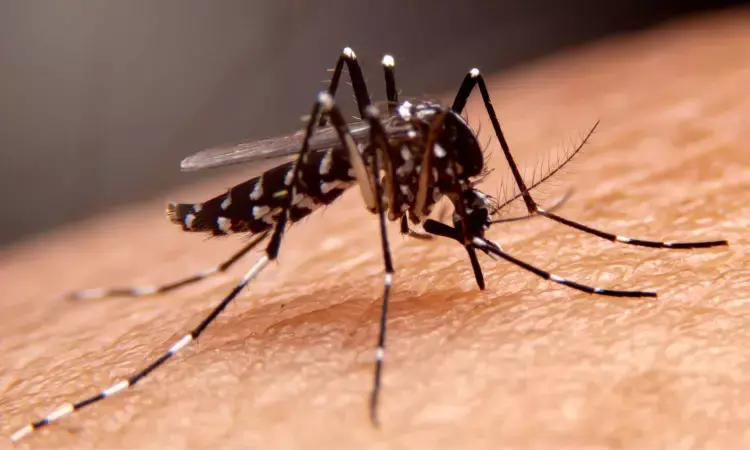- Home
- Medical news & Guidelines
- Anesthesiology
- Cardiology and CTVS
- Critical Care
- Dentistry
- Dermatology
- Diabetes and Endocrinology
- ENT
- Gastroenterology
- Medicine
- Nephrology
- Neurology
- Obstretics-Gynaecology
- Oncology
- Ophthalmology
- Orthopaedics
- Pediatrics-Neonatology
- Psychiatry
- Pulmonology
- Radiology
- Surgery
- Urology
- Laboratory Medicine
- Diet
- Nursing
- Paramedical
- Physiotherapy
- Health news
- Fact Check
- Bone Health Fact Check
- Brain Health Fact Check
- Cancer Related Fact Check
- Child Care Fact Check
- Dental and oral health fact check
- Diabetes and metabolic health fact check
- Diet and Nutrition Fact Check
- Eye and ENT Care Fact Check
- Fitness fact check
- Gut health fact check
- Heart health fact check
- Kidney health fact check
- Medical education fact check
- Men's health fact check
- Respiratory fact check
- Skin and hair care fact check
- Vaccine and Immunization fact check
- Women's health fact check
- AYUSH
- State News
- Andaman and Nicobar Islands
- Andhra Pradesh
- Arunachal Pradesh
- Assam
- Bihar
- Chandigarh
- Chattisgarh
- Dadra and Nagar Haveli
- Daman and Diu
- Delhi
- Goa
- Gujarat
- Haryana
- Himachal Pradesh
- Jammu & Kashmir
- Jharkhand
- Karnataka
- Kerala
- Ladakh
- Lakshadweep
- Madhya Pradesh
- Maharashtra
- Manipur
- Meghalaya
- Mizoram
- Nagaland
- Odisha
- Puducherry
- Punjab
- Rajasthan
- Sikkim
- Tamil Nadu
- Telangana
- Tripura
- Uttar Pradesh
- Uttrakhand
- West Bengal
- Medical Education
- Industry
Targeted Indoor Spraying Shows No Significant Reduction in Aedes-Borne Disease Incidence: NEJM

Researchers have found in a new study that targeted indoor residual spraying reduced mosquito levels but did not significantly decrease Aedes-borne disease cases. The study was published in The New England Journal of Medicine by Natalie E. and colleagues. Aedes aegypti is a key vector transmitting these viral diseases, and population control remains an important challenge in the tropics. The research sought to assess whether the spraying of insecticides on targeted resting sites for mosquitoes within homes would be more effective in preventing infection than traditional public health practice.
The trial was a two-group, parallel, unblinded, cluster-randomized trial done in Mérida, Mexico. Fifty clusters of five-by-five city blocks were used in the trial. Within these clusters, 4,461 children aged 2 to 15 years were enrolled and followed up over three transmission seasons—2021, 2022, and 2023. Twenty-five clusters were given annual applications of targeted indoor residual spraying prior to the Aedes-borne disease season (July to December), with routine Ministry of Health vector control given to all clusters. The intervention consisted of applying insecticide to common surfaces that mosquitoes rest upon, including exposed lower wall sections and surfaces beneath furniture. The main outcome was laboratory-confirmed, symptomatic Aedes-borne illness, that is, dengue, chikungunya, and Zika.
Results
• Over three monitoring seasons, indoor density of Aedes aegypti mosquitoes was 59% lower in the intervention compared with the control group (95% confidence interval [CI], 51 to 65).
• Even with this decline, as many as 422 cases of confirmed Aedes-borne disease were reported, mostly dengue in 2023.
• For the per-protocol analysis of cluster centers, 91 cases were observed among 1,038 intervention participants and 89 among 1,037 control participants, demonstrating an efficacy of −12.8% (95% CI, −60.7 to 23.0).
• The intention-to-treat analysis of all clusters showed 198 cases among 2,239 intervention group participants and 199 among 2,222 control group participants, with an efficacy of 3.9% (95% CI, −28.1 to 26.7).
• Adjustments for variables including demographic variables and participant mobility did not affect the outcome of the study.
• The community-level analysis, on the basis of 150 cases in intervention clusters and 202 in control clusters, revealed a modest protective effect, with estimated 24.0% (95% CI, 6.0 to 38.6) community benefit.
• Notably, only two cases of mild, multisymptom adverse events consisting of nausea, watery eyes, diarrhea, and vomiting were reported among the individuals exposed to the insecticide treatment, showing good overall safety and tolerability of the intervention.
The study concluded that indoor residual spraying targeting specific localities was effective in reducing the population density of Aedes aegypti mosquitoes but was ineffective in reducing the cumulative incidence of Aedes-borne diseases like dengue, chikungunya, or Zika. The study suggests that subsequent vector control interventions need to target integrated methods in which insecticide spraying is supplemented by integrated community-based interventions in an effort to better cut the incidence of these diseases.
Reference:
Dr Riya Dave has completed dentistry from Gujarat University in 2022. She is a dentist and accomplished medical and scientific writer known for her commitment to bridging the gap between clinical expertise and accessible healthcare information. She has been actively involved in writing blogs related to health and wellness.
Dr Kamal Kant Kohli-MBBS, DTCD- a chest specialist with more than 30 years of practice and a flair for writing clinical articles, Dr Kamal Kant Kohli joined Medical Dialogues as a Chief Editor of Medical News. Besides writing articles, as an editor, he proofreads and verifies all the medical content published on Medical Dialogues including those coming from journals, studies,medical conferences,guidelines etc. Email: drkohli@medicaldialogues.in. Contact no. 011-43720751


